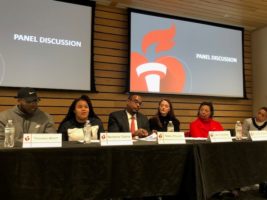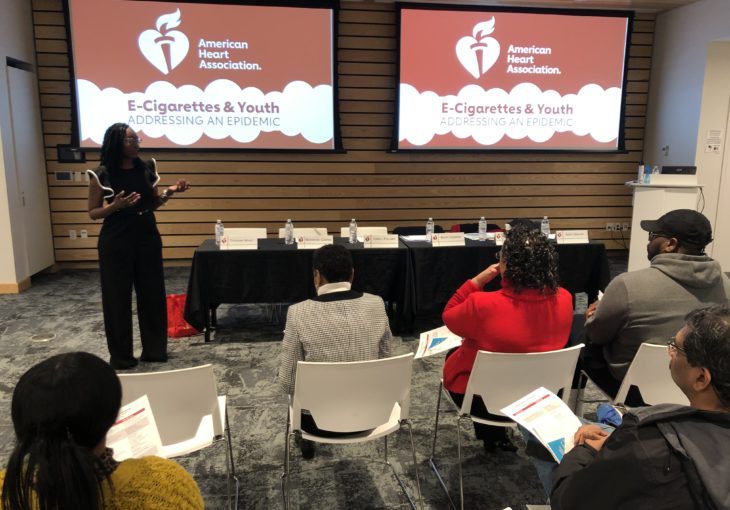The American Heart Association is deeply concerned about the public health crisis facing our country. Our top priority regarding coronavirus (COVID-19) is the health and well-being of all individuals and their families today and in the future, in every community, everywhere. Millions of people are counting on us for science-based information, health resources, community programs and patient support. We are continuing our mission-critical work in these challenging times and we know that people with cardiovascular diseases are more likely to be seriously impacted by the virus than others. No matter who you are or where you are, the American Heart Association is here to help you through these times. We’re providing trusted, science-based tools and resources to empower you to take charge of your health and well-being.
On February 27, the AHA partnered with Henrico County Public Schools Family and Community Engagement, Henrico County Too Smart 2 Start coalition, and the Virginia Department of Health to offer a workshop for parents and educators to learn about the youth e-cigarette epidemic, the dangers of products, and how to prevent their use.

Panelists included AHA Board members, youth ambassadors, and community leaders.
The good news, over the past 20 years, we have seen a significant drop in the number of teens who smoke cigarettes. The bad news, teens are vaping at alarming rates. Between 2017-2018, e-cigarette use rose 78% among high school students and 48% among middle school students. One in ten Henrico teens have reported using e-cigarettes. This is especially relevant as the World Health Organization has stated smokers are likely more vulnerable to severe and potentially life-threatening cases of COVID-19. While there is no direct data as of yet about the role of vaping in COVID-19 infection or its outcomes, a growing body of evidence shows that vaping can harm lung health.
The program included a presentation, panel discussion and Q&A, and concluded with a call to action. Sarah Birckhead, Regional Tobacco Coordinator for VDH and active AHA Volunteer provided an overall framing of the issue and demonstration of the products that are on the market. Parents and teachers were shocked to learn about how easily products can be hidden and used.
AHA Board President Sheryl Garland served as the panel moderator and was joined by Dr. Lornel Tompkins, AHA Board member and retired pulmonologist, community leaders and two Henrico youth who shared their experiences with peers using e-cig and how they spread the message that vaping is dangerous. According to Terrell Pollard, Chair of Henrico Too Smart 2 Start, “In Henrico County, students ages 12-17 surveyed in 2018 reported that e-cigarettes are the second most prevalent substance they use. This is a serious problem.”
The panel’s Youth Ambassadors shared: “Lots of people are using ‘vape’ or e-cigarettes a lot… [I ask them] why is that necessary? Why do you need it? And many say it’s a closure or let out [because of stress]. And I just talk to them about other ways to make themselves happy”.
“As an athlete, first and foremost I care about my body and I just say no to peer pressure.”
The evening was wrapped up with a Call to Action where Robin Gahan, AHA’s Vice President of Health asked attendees to contribute their ideas to address prevention, policy change, treatment, and community engagement.
Some ideas included including prevention education earlier, beginning in Elementary School, Youth Ambassadors engaging the peers at popular events like sport events and Back to School Nights with a relatable public health service announcement. These great ideas and many others will now be shared with the Henrico To Smart 2 Start Coalition and Henrico County School Health Advisory Board to inform next steps that Henrico County can take to ensure a longer, healthier life for their youth.
We are expanding our efforts to meet people where they are in social media – in real time – sharing our science-backed health information to both engage and empower communities. The AHA is planning to convene virtual community dialogues in the future via videos on social media and blog platforms to continue addressing the issue. For more information, please contact [email protected].
